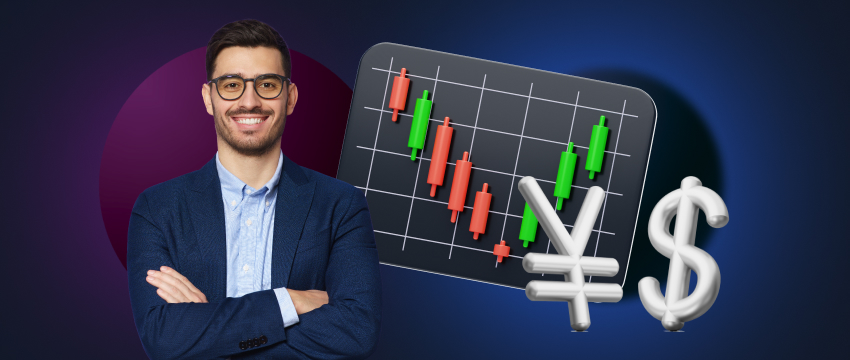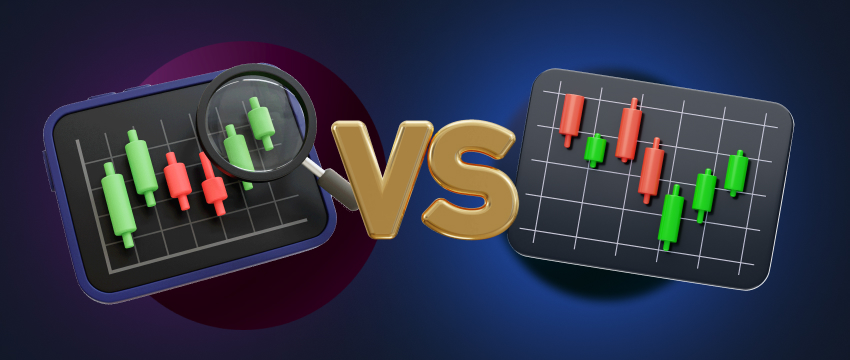Fundamental analysis is popular in forex trading. Many traders rely solely on it. Others combine it with technical analysis. However, some prefer only fundamental analysis.
They focus on macroeconomic data. Market sentiment also plays a role. Geopolitical factors are equally important. These traders make decisions based on these elements.
Fundamental traders follow a totally different path than those traders who become engrossed in mathematical charts and indicators.
Reading the news takes skill. Staying updated is also essential. Traders sift through the noise. They choose relevant information carefully.
Political developments affect currency values. Economic reports also play a role. World news impacts currency movements. Fundamental traders focus on key news. They track political and market events.
Trump’s tariffs caused market tumbling. His threats impacted the Eurozone. The euro weakened as a result. Understanding this is crucial for traders. Words and news move markets.
Awareness of this is key. Let’s see in more detail how fundamental traders work and what they look for in order to make their decisions.

Fundamental Analysis in forex trading
The primary goal of analysis is to determine what factors contribute to a currency’s strength or weakness. Fundamental traders concentrate on broad economic trends, central bank decisions, and other factors rather than historical price movements.
Consider it this way: A nation’s currency is likely to appreciate if it is doing well, which includes low unemployment, robust economic growth, and stable leadership.
Conversely, a nation’s currency may depreciate if it is experiencing an economic slowdown, political unrest, or high inflation.
Therefore, monitoring these trends and forecasting based on them is the responsibility of a fundamental trader. Sounds easy, doesn’t it? Not quite, actually. Analysing a vast amount of data and determining which variables are most important in the forex market is the difficult part.
Fundamental trader watches macroeconomic indicators
To assess the state of an economy, fundamental traders consider a number of important indicators.
الناتج المحلي الإجمالي (GDP)
Consider GDP to be the overall “grade” of a nation’s economy. It calculates the total amount of goods and services produced during a given time frame.
A growing GDP indicates that the economy is doing well and that its value may increase. A declining GDP could indicate problems down the road and result in a depreciating currency.
For instance, traders may anticipate that the US dollar will appreciate as investors’ confidence in the economy grows if the US releases a GDP report that demonstrates robust growth.
Rising inflation signals fundamental trader action
The rate of price increases over time is measured by inflation. While some inflation is normal, even beneficial, too much inflation can be problematic. Central banks intervene and modify interest rates when inflation becomes excessive.
Employment figures
A robust labour market indicates a sound economy. Businesses flourish, consumers spend more, and the economy grows when more people are employed. However, consumer spending declines and the economy may slow down if unemployment increases.
For instance, traders may expect slower economic growth if the United States releases a weak jobs report that shows rising unemployment, which could cause the dollar to weaken.
Central Banks guide fundamental trader decisions
Interest rates, which have a direct effect on currency values, are set by central banks (such as the Federal Reserve or the European Central Bank). While lower interest rates make a currency less appealing, higher rates draw in foreign investment and strengthen it.
For instance, if the Bank of England raises interest rates without warning, investors may rush to profit from the higher returns, which could cause the value of the British pound to rise.
Geopolitical tensions
Elections, government policies, and global conflicts can unsettle the markets and generate uncertainty. When investors become anxious, they seek the stability of assets like gold, the greenback, the Swiss franc, or the Japanese yen.
For instance, traders may sell the currency of a major nation in favour of more stable options if that nation experiences political unrest (such as a fall of the government or protests).
News reports and market sentiment
Markets can occasionally move merely because traders “feel” a certain way. Unexpected events, big news headlines, and even social media posts, yes, even tweets from world leaders or tech billionaires like Elon Musk can all cause abrupt changes in currency values. Musk’s support for Dogecoin is an example or Trump’s threats to the Eurozone is another one.
For instance, a central bank official’s unexpected announcement about upcoming interest rate increases might cause traders to rush to purchase that currency, increasing its value.

Applying fundamental analysis to forex
Imagine a thriving U.S. economy with rising GDP, rising employment, and controlled inflation. Consequently, the Federal Reserve is contemplating an increase in interest rates.
The demand for the US dollar rises as a result of higher rates, which increase the appeal of US assets to foreign investors. In the hopes that its value would increase, a forex trader might choose to purchase the USD against weaker currencies.
Let’s now reverse the situation. Assume that economic data indicates a slowdown in the United States, with rising unemployment and slower GDP growth.
The Federal Reserve responds by cutting interest rates in an effort to stimulate the economy. One might think about selling the USD against stronger currencies because lower rates make the USD less appealing.
By keeping abreast of economic events and market-moving events fundamental traders can prepare and trade accordingly catching trends before they even happen.
Using fundamental alongside technical analysis
Many forex traders combine technical and fundamental analysis, although some traders only use fundamental analysis.
Technical analysis aids in deciding when to enter and exit a trade, while fundamental analysis helps traders comprehend why a currency is moving. The “story” of a currency, whether it is strong or weak, is revealed by its fundamentals.
Finding the ideal “entry and exit points”, when to buy or sell, is made easier with the aid of technical analysis.
For instance, a trader may use technical indicators (such as moving averages or support/resistance levels) to determine the ideal time to enter a trade if fundamental analysis predicts that the value of the US dollar will increase.

Macroeconomic and geopolitical factors in forex
Keeping an eye on the big picture is essential for fundamental traders. This may imply:
- observing changes in interest rates and central bank announcements.
- Monitoring international investment flows and trade data.
- Keeping abreast of political developments that could cause market volatility.
Traders can stay ahead of the game and make well-informed predictions about currency movements by comprehending these forces.
For forex traders who wish to comprehend what actually influences currency markets, fundamental analysis is a potent tool. Making informed trading decisions requires more than just math; it also requires analysing global events, political trends, and economic patterns.
Although mastering it takes time, traders will gain a deeper understanding of how the forex market functions. Traders will be well on their way to becoming well-rounded traders when combining it with technical analysis.
Therefore, paying attention to fundamental factors can give a significant advantage in forex trading, regardless of the level of experience.
Whether one is just starting out or is a more advanced trader, keeping an eye on fundamental factors can give a serious edge in forex trading.
Time to start analysing those economic reports and making informed trades!
إخلاء مسؤولية: This material is for general informational and educational purposes only and should not be considered investment advice or an investment recommendation. T4Trade is not responsible for any data provided by third parties referenced or hyperlinked in this communication.




